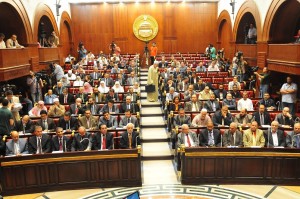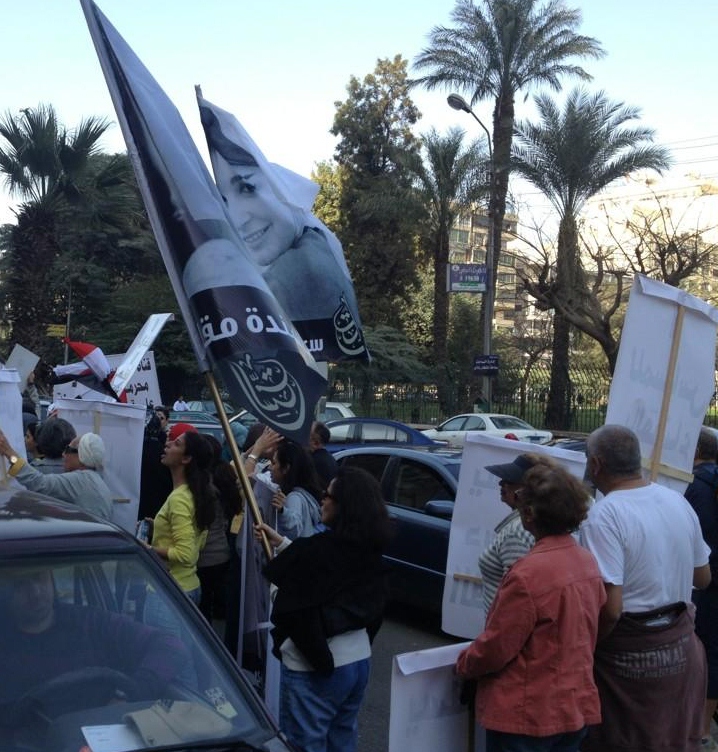
The Shura Council Human Rights Committee addressed on Monday the recent wave of sexual harassment proliferating during mass protests, calling for specifying places of protest for females.
“Women should not mingle with men during protests,” said Reda Al-Hefnawy, Freedom and Justice Party (FJP) member. “How can the Ministry of Interior be tasked with protecting a lady who stands among a group of men?”
Adel Afifi, a prominent board member of the Salafi Party Al-Asala, blamed women for the sexual harassment phenomenon. “A woman who joins protests among thugs and street inhabitants should protect herself before asking the Ministry of Interior to offer her protection,” Afifi said, adding that police officers are incapable of protecting themselves.
Salafi Al-Nour Party member Salah Abdel Salam also believed women were responsible for sexual harassment. “The woman bears the offence when she chooses to protest in places filled with thugs,” Abdel Salam said. He added that, nevertheless, the phenomenon needs to be addressed.
“Women sometimes cause rape upon themselves through putting themselves in a position which makes them subject to rape,” Afifi said. He called for punishing the “children” who commit such acts even if their punishment breaches international conventions.
“Some foreign-funded organisations are imposing western beliefs upon us; tents present in some squares witness prostitution,” he said.
Committee head Ezz al-Din Al-Komy stated during the session that 24 acts of systematic rape cases have been observed in Tahrir Square recently. Al-Komy criticised state-owned and independent media outlets, accusing them of “putting the dragged protester Hamada Saber under the spotlights while ignoring the sexually assaulted girls”.
Ahmed Al-Khatib, head of the Appeals Court, held the political movements responsible for the assaults. He urged opposition movements to stop calling for protests as long as they are incapable of protecting the protesters against harassment.
Al-Khatib also stated that the non-governmental organisations “ought to defend women’s rights instead of concerning themselves with political issues”.
“What came out of the Shura Council today is horrible,” said Sally Zohney, a women’s rights activist. “Those statements are inhumane, to say the least.”
Zohney stated she doesn’t expect the Shura Council, the current legislative authority, to issue a law banning sexual harassment. She said she saw no point in engaging in a hearing session with the council about sexual harassment, describing the hearing as “a waste of time”.
“The council knows quite well the problem of sexual harassment,” she said. “They won’t put themselves in any hassle coupled with issuing laws as long as a Peoples’ Assembly is expected to replace them soon.”
Zohney condemned the council members’ trial blaming the victim for the attacks instead of offering them help. “In facing social problems regarding assaults on women, the easy way out is always to separate them [the women] from the men,” Zohney said. “Yet, it’s disastrous to hear such solutions coming out of the Shura Council.”
An international march condemning sexual harassment in Egypt is scheduled to take place worldwide on Tuesday. Protesters are expected to rally outside Egyptian embassies throughout the world, and in Egyptian squares nationwide. Zohney expected the protests to gain momentum as a result of the statements issued during the Shura Council’s session.

